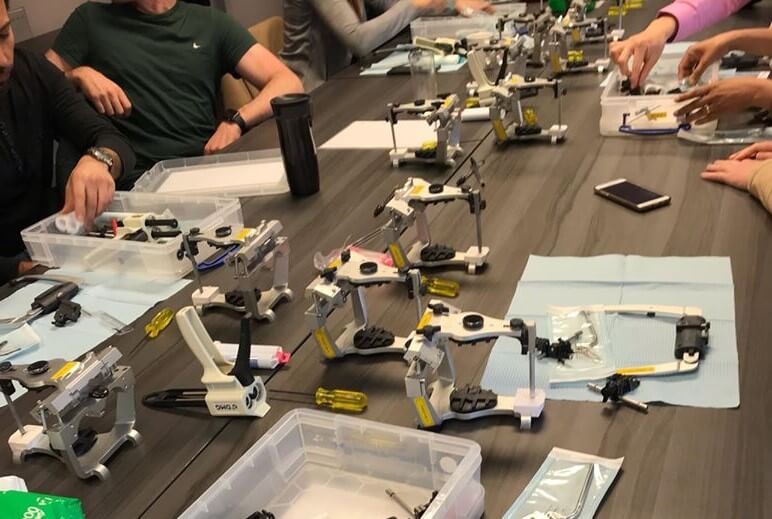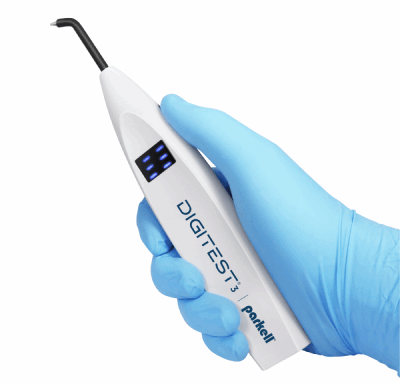How articulators are transforming practice & patient life
Making the most of her role as an Occlusion Product Specialist, Jennifer Ball considers how the articulator is transforming practice and patient life.
Jennifer Ball began her professional life in dentistry as a dental nurse, a role she relished for 15 years. Following a rewarding stint at a practice in Leeds City Centre, Jennifer’s desire to progress her career coincided with the principal’s decision to take a step back, so the scene was set for her to pursue new horizons. Through networking, Jennifer discovered that Prestige Dental was looking for a new rep and the rest – as they say – is history.
As Occlusion Product Specialist, what does a working day look like for you?
Day-to-day, I visit practices and help them to get the most from their articulators. Beyond that, a lot of what I do is ‘behind the scenes’, so to speak. When Prestige Dental is involved with organising courses on occlusion and articulator use in the UK and Scandinavia, I sort out the logistical aspects. So, for example, I make sure there are enough Denar articulators and other equipment on hand for the delegates to use, as well as liaising with all the key opinion leaders to see what I can do to make their lives easier. I also attend as many of the courses as I possibly can, because I love to meet new people and catch up with old friends.
What are your thoughts on the Denar articulator in action?
They are very simple to use when compared to many other makes that are available. That, combined with their accuracy and reliability, makes for very happy dental teams and patients, taking quite a lot of the stress out of more complex procedures.
What kinds of impact does using the articulator have for the practice and patients?
Its level of precision and repeatability saves everyone time, and the practice doesn’t need to send the articulator, along with the models, to the lab when the technician also has a Denar 300. Practically speaking, it also saves money because re-makes aren’t needed. For patients, I think seeing an articulator in use shows them that the dentist is working at a high level. Some of what happens doesn’t necessarily register with the patient, of course, unless the dentist tells them what is happening. For example, if a dentist gave a patient a standard bite splint to wear overnight without considering the occlusion, they might be doing more harm than good; in some cases, it can make patients brux more in their sleep!
How important is training in use of the articulator?
I’ve seen for myself that dentists who haven’t had enough training in the use of an articulator or facebow – and can think they need three pairs of hands to use it effectively – get too scared to use it and, ultimately, it can become an expensive dust collector! However, after just one tutorial, or with the help of myself or one of my colleagues, dentists can quickly learn how to get the most from their equipment. I’m available to visit customers at whatever time is convenient for them, to run the dental team through using the equipment.

What role does the British Society for Occlusal Studies (BSOS) play in what you do?
The BSOS offers fabulous support for dentists and patients in relation to occlusion, offering excellent courses to help dental teams make the most of their articulator.
Just as with Prestige’s courses, I’ll make sure they have Denar articulators, facebows and other occlusion products for the handson demonstration and hands-on purposes.
How important is aftercare when a dentist purchases an articulator?
It’s a big investment and so it’s really important to make sure it’s working as well as it can. With the Denar Mark II, I would say dentists who use it a lot should get it calibrated once a year, and technicians probably twice a year. On the other hand, because of the way the 300 series is made, there’s no need for calibration. That said, there is always the possibility of a mishap, for example dropping the articulator, so aftercare service is always important. Consider the time and money implications of having the articulator out of action for any period, and let’s not forget the possibility of patients being upset if their treatment is delayed.
What advice can you offer dentists considering investing in an articulator?
An articulator needs to be easy to figure out, represent the natural movements of the jaws, be easy to handle, and simplify the transfer of patient records. If we look at the Denar 300 series as an example, it represents the ideal for effective treatment planning, communicating with the laboratory and showing patients what the problem is, and how that problem can be solved. With the dentist, technician and patient working in concert like that, an articulator offers incredible value, in terms of saving time, money and patients’ oral health.
Copyright © Prestige Dental Products UK Ltd 2025
Registered in England, UK no. 2391338. VAT no. 5580015.





